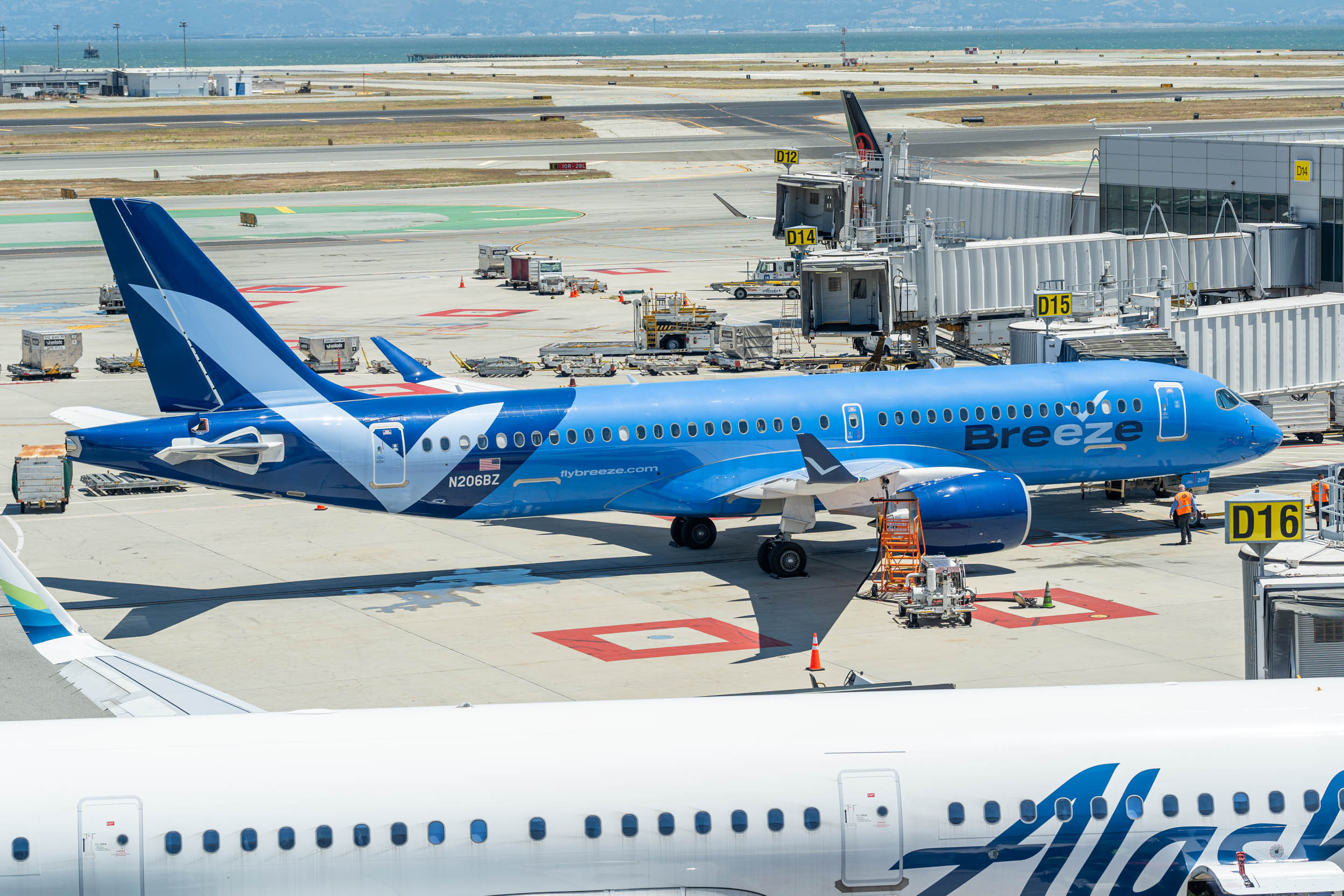Breeze CEO David Neeleman doubles downs on Breeze’s success, calls sustainable aviation fuel a ‘waste of money’
Despite the naysayers, Breeze Airways founder and CEO David Neeleman doubled down on the ultra-low-cost carrier’s long-term viability during a Q&A at the Skift Global Conference in New York City on Wednesday.
Breeze, founded in 2021, relies on a business model similar to that of Allegiant and Avelo — it operates routes between underserved destinations and popular leisure ones. Since its founding, Breeze has added a slate of new routes ranging from major leisure cities like Los Angeles and Orlando and smaller ones like Springfield, Illinois, and Charleston, West Virginia.
However, the ultra-low-cost carrier has faced a rocky start. Constrained by the pilot shortage, Breeze not only increased pay beyond what it had planned — a win for pilots — but also looked to recruit pilots from Australia to fill its flight decks. In June 2022, Breeze initially had to postpone the launch of a few new routes, including one to LA, due to staffing shortages and supply chain issues.
“I wasn’t going to start an airline for the sake of starting it,” he said. “If you just do that, then obviously you’re not successful and most airlines are not successful.”
Neeleman, a serial airline entrepreneur who founded JetBlue and Brazil-based Azul, said he believed Breeze was filling a gap in the U.S. market given the limitations of regional jets and the fact that airlines have gradually opted to operate larger planes for most flights.
“I saw this trend where the airplanes were getting bigger and bigger and bigger,” he said at the Skift conference. “I just saw that there was a middle space.”
Breeze’s fleet is primarily comprised of Airbus A220s, narrow-body jets that can seat up to 160 passengers. Neeleman said he thought they had unique characteristics, citing their long fuel range and ability to accommodate premium seating (the airline also uses smaller Embraer regional jets).
As a result, Neeleman said there is an “exponential amount of markets” Breeze can serve, including its most recent addition of Springfield, Illinois — the carrier’s first airport in the state.
“We really want to fly where people are, we want to be able to make it convenient for customers,” he said.

Daily Newsletter
Reward your inbox with the TPG Daily newsletter
Join over 700,000 readers for breaking news, in-depth guides and exclusive deals from TPG’s experts
Breeze is also slated to expand internationally, most likely to destinations in Mexico or the Caribbean. Neeleman reiterated at the panel that he believed Breeze’s international expansion would be successful. The carrier is waiting for the U.S. Department of Transportation to grant it the authority to operate international flights, and the Breeze CEO said he expected to receive the approval by the end of the year.
Neeleman also noted that he felt Breeze has been able to appeal to customers so far because it doesn’t charge cancellation fees. It also has a seating policy that accommodates families, along with premium seating, which he said many customers are willing to buy.
Even as Breeze eyes an international expansion in 2023, Neeleman cautioned that airlines have over-scheduled flights for the fall with weak travel demand, driving down airfare as rising jet fuel costs squeeze airlines’ profit margins.
Large U.S. airlines reported record profits during the summer, driven by a surge in demand for international travel. Meanwhile, ultra-low-cost carriers limped through the second quarter earnings seasons, with many reporting net losses in response to weakened demand for domestic travel.
“There’s a lot of people traveling, it’s just that you have to build that extra 20% of fares,” he said. “Fares have come down as fuel prices have gone up.”
However, the serial airline entrepreneur said he still thinks there’s a sizable market of people who want to travel domestically, citing Allegiant’s high second-quarter profit margins.
While Breeze is still in its early stages, it’s not immune to some of the same controversies that plague bigger airlines, including the use of “junk fees” — the extra fees tacked onto hotel bookings, credit cards, airfare and events that lawmakers in Congress are seeking to outlaw.
In the case of Breeze, the carrier charges an additional “technology development” fee when customers book flights. When asked why Breeze charges an extra fee, Neeleman didn’t have a response and instead emphasized that the carrier does not charge any change or cancellation fees.
“I don’t know,” he said. “It’s something our guys decided to do. It is a little annoying but we do have a technology expense.”
The Skift panel also touched on the airline industry’s quick embrace of sustainable aviation fuel, which Neeleman — perhaps controversially — said he believes is a “waste of money.”
“I bought a Tesla. It was $60,000. I put electricity in it,” he said. “It’s cheaper for me to drive that car. It doesn’t work on an airplane but it works in a car.”
Neeleman instead suggested that the industry should instead invest its money into where it makes “economic sense.”
“This is just greenwashing,” Neeleman said. “It really is. It’s nonsense and I think somebody needs to say it is for what it is.”

